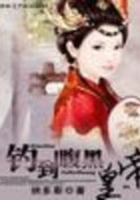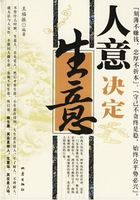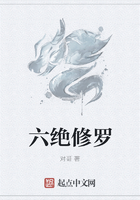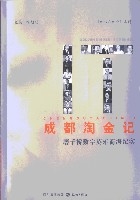It was said that there were sixteen thousand persons in the Auditorium, and it seemed to me as if there were as many more on the outside trying to get in. It was impossible for any one to get near the entrance without the aid of a policeman. President William McKinley attended this meeting, as did also the members of his Cabinet, many foreign ministers, and a large number of army and navy officers, many of whom had distinguished themselves in the war which had just closed. The speakers, besides myself, on Sunday evening, were Rabbi Emil G. Hirsch, Father Thomas P.
Hodnett, and Dr. John H. Barrows.
The Chicago Times-Herald, in describing the meeting, said of my address:--
He pictured the Negro choosing slavery rather than extinction; recalled Crispus Attucks shedding his blood at the beginning of the American Revolution, that white Americans might be free, while black Americans remained in slavery; rehearsed the conduct of the Negroes with Jackson at New Orleans; drew a vivid and pathetic picture of the Southern slaves protecting and supporting the families of their masters while the latter were fighting to perpetuate black slavery; recounted the bravery of coloured troops at Port Hudson and Forts Wagner and Pillow, and praised the heroism of the black regiments that stormed El Caney and Santiago to give freedom to the enslaved people of Cuba, forgetting, for the time being, the unjust discrimination that law and custom make against them in their own country.
In all of these things, the speaker declared, his race had chosen the better part. And then he made his eloquent appeal to the consciences of the white Americans: "When you have gotten the full story or the heroic conduct of the Negro in the Spanish-American war, have heard it from the lips of Northern soldier and Southern soldier, from ex-abolitionist and ex-masters, then decide within yourselves whether a race that is thus willing to die for its country should not be given the highest opportunity to live for its country."
The part of the speech which seems to arouse the wildest and most sensational enthusiasm was that in which I thanked the President for his recognition of the Negro in his appointments during the Spanish-American war. The President was sitting in a box at the right of the stage. When I addressed him I turned toward the box, and as I finished the sentence thanking him for his generosity, the whole audience rose and cheered again and again, waving handkerchiefs and hats and canes, until the President arose in the box and bowed his acknowledgements. At that the enthusiasm broke out again, and the demonstration was almost indescribable.
One portion of my address at Chicago seemed to have been misunderstood by the Southern press, and some of the Southern papers took occasion to criticise me rather strongly. These criticisms continued for several weeks, until I finally received a letter from the editor of the Age-Herald, published in Birmingham, Ala., asking me if I would say just what I meant by this part of the address. I replied to him in a letter which seemed to satisfy my critics. In this letter I said that I had made it a rule never to say before a Northern audience anything that I would not say before an audience in the South. I said that I did not think it was necessary for me to go into extended explanations; if my seventeen years of work in the heart of the South had not been explanation enough, I did not see how words could explain. I said that I made the same plea that I had made in my address at Atlanta, for the blotting out of race prejudice in "commercial and civil relations." I said that what is termed social recognition was a question which I never discussed, and then I quoted from my Atlanta address what I had said there in regard to that subject.
In meeting crowds of people at public gatherings, there is one type of individual that I dread. I mean the crank. I have become so accustomed to these people now that I can pick them out at a distance when I see them elbowing their way up to me. The average crank has a long beard, poorly cared for, a lean, narrow face, and wears a black coat. The front of his vest and coat are slick with grease, and his trousers bag at the knees.
In Chicago, after I had spoken at a meeting, I met one of these fellows. They usually have some process for curing all of the ills of the world at once. This Chicago specimen had a patent process by which he said Indian corn could be kept through a period of three or four years, and he felt sure that if the Negro race in the South would, as a whole, adopt his process, it would settle the whole race question. It mattered nothing that I tried to convince him that our present problem was to teach the Negroes how to produce enough corn to last them through one year. Another Chicago crank had a scheme by which he wanted me to join him in an effort to close up all the National banks in the country. If that was done, he felt sure it would put the Negro on his feet.
The number of people who stand ready to consume one's time, to no purpose, is almost countless. At one time I spoke before a large audience in Boston in the evening. The next morning I was awakened by having a card brought to my room, and with it a message that some one was anxious to see me. Thinking that it must be something very important, I dressed hastily and went down. When I reached the hotel office I found a blank and innocent-looking individual waiting for me, who coolly remarked:
"I heard you talk at a meeting last night. I rather liked your talk, and so I came in this morning to hear you talk some more."
I am often asked how it is possible for me to superintend the work at Tuskegee and at the same time be so much away from the school. In partial answer to this I would say that I think I have learned, in some degree at least, to disregard the old maxim which says, "Do not get others to do that which you can do yourself." My motto, on the other hand, is, "Do not do that which others can do as well."














